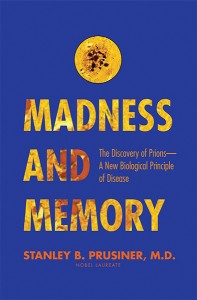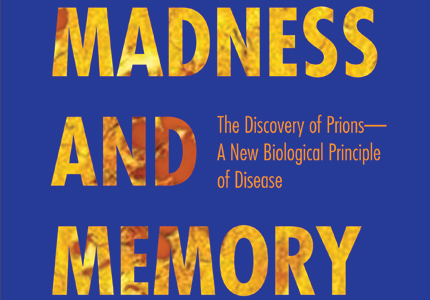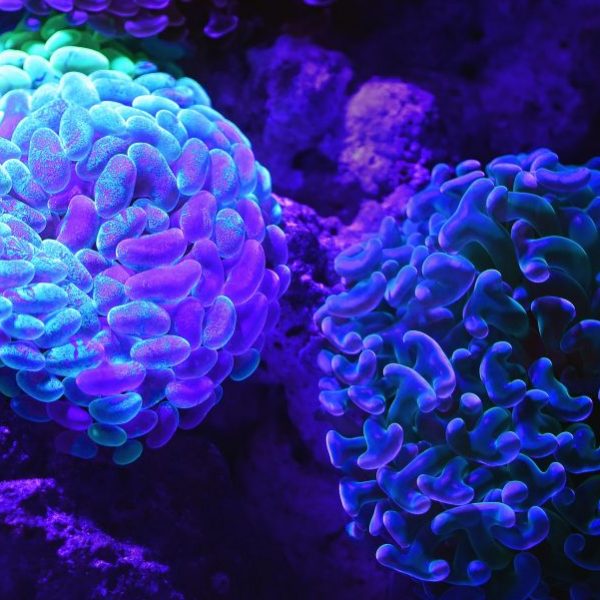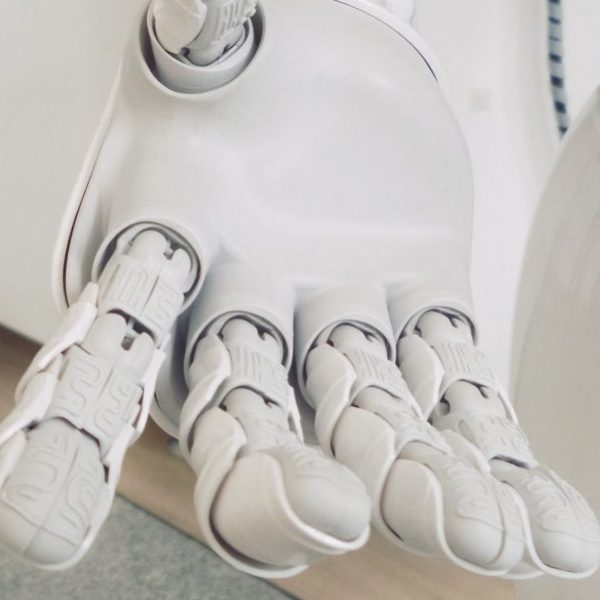Madness and Memory: A Conversation with Nobel Laureate Stanley B. Prusiner, M.D.
 Although he encountered enormous skepticism, Dr. Stanley B. Prusiner persevered in his research on the causes of degenerative brain diseases, convinced the scientific community of his findings, and, in 1997, received the Nobel Prize. He argued that conditions including scrapie in sheep and goats, mad cow disease in cattle, and Creutzfeldt-Jakob disease in humans were caused by “prions”–a term he arrived at by combining “protein” and “infection.” The idea that proteins could cause infectious diseases contradicted the scientific understanding of the time, which held that only agents with genetic material–viruses, bacteria, fungi–were potential infectious agents. Prusiner’s book, Madness and Memory, tells the story of his remarkable discovery and recounts the obstacles he overcame before others would recognize his work’s importance. We sat down with Prusiner to discuss the origins of his hypothesis, the nature of discovery, and what yet remains to be done.
Although he encountered enormous skepticism, Dr. Stanley B. Prusiner persevered in his research on the causes of degenerative brain diseases, convinced the scientific community of his findings, and, in 1997, received the Nobel Prize. He argued that conditions including scrapie in sheep and goats, mad cow disease in cattle, and Creutzfeldt-Jakob disease in humans were caused by “prions”–a term he arrived at by combining “protein” and “infection.” The idea that proteins could cause infectious diseases contradicted the scientific understanding of the time, which held that only agents with genetic material–viruses, bacteria, fungi–were potential infectious agents. Prusiner’s book, Madness and Memory, tells the story of his remarkable discovery and recounts the obstacles he overcame before others would recognize his work’s importance. We sat down with Prusiner to discuss the origins of his hypothesis, the nature of discovery, and what yet remains to be done.
Yale University Press: In a time when research into infectious disease depended on the assumption that infection was caused by the presence of a living agent, what prompted you to posit that proteins (prions) were at the heart of neurological diseases/ “transmissible spongiform encephalopathies?”
Dr. Stanley B. Prusiner: What prompted me to suggest that the scrapie agent was composed only of a protein is that as we enriched scrapie infectivity relative to other molecules, we kept finding evidence for protein and less and less evidence for a nucleic acid (DNA or RNA). These results were unexpected but eventually we were able to study preparations in which we had removed 99% of the contaminating proteins and nucleic acids. Such preparations were subjected to six procedures that modified nucleic acids and six other procedures but altered proteins; only the procedures that modified proteins were found to reduce scrapie infectivity. In contrast, procedures that damaged or modified nucleic acids did not change the infectivity.
YUP: You cite your “vaunted self-confidence” on a few occasions in Madness and Memory. Do you think this, in addition to private funding, is what allowed you to persevere in the face of hurdles, such as lack of laboratory space, mice, and other resources, along with your peers’ derision and hesitation to collaborate?
SBP: Before venturing into studies of the scrapie agent, I believed that I had a reasonable grasp of how to do the good science with sufficient controls and well-thought-out experiments. I also believed it would be possible to make modest progress if I remained focused and was lucky. What I did not know is how the work would turn out and whether the progress would be sufficient to maintain the needed funding. Yes, private support was very important but government grants were equally critical — without both, the work would have floundered.

Dr. Stanley B. Prusiner; Photo by Russ Fischella
YUP: How did you react to others’ attempts to take credit for your work, and what did you do to remain in the public consciousness as the originator of the term, prion?
SBP: Proper credit in science is very important. Many scientists work very hard for years and never make a big discovery. Only a few are lucky enough to stumble into an important discovery. More than any other profession, proper credit for being the first person or group to make a discovery is critical. A particular discovery only happens once, and whether you are second, third, or twentieth, it makes no difference. It is important to recognize that there will be no re-discovery: there will be no rematch, no new World Series, or no new Super Bowl next year. Once the discovery is made, it is final. Obviously, all scientific discoveries must be independently confirmed and only then does it become part of the body of scientific knowledge. One of the great aspects of scientific investigation is that discoveries are accorded to those that publish first in peer-reviewed, scholarly journals — this is the currency of scientific discovery.
YUP: Now that your work, once deemed heretical, is widely accepted and serves as the basis for diagnosis and eventual cures, how soon do you feel the scientific community will be able to tackle cures for other fatal neurological diseases, such as Lou Gehrig’s, Alzheimer’s, and Parkinson’s?
SBP: While the work on PrP prions causing Creutzfeldt-Jakob disease is now well accepted, there is not universal acceptance of prions causing Alzheimer’s, Parkinson’s, Lou Gehrig’s, and other neurodegenerative diseases. But the evidence is mounting, and in time, I believe such ideas will become widely accepted. We are working diligently on developing drugs that will slow and possibly halt the progression of neurodegenerative diseases.
YUP: In your speech at the 1996 Nobel Banquet, you mentioned that the course of prion study has reflected an odyssey that has taken you from “heresy to orthodoxy.” Considering the various sentiments about prions (Protein-only hypothesis, viral hypothesis, etc.), do you feel that the odyssey is over?
SBP: The scientific odyssey that began several decades ago is still not over. Only when we and others have developed therapeutics that prevent Alzheimer’s, Parkinson’s, Lou Gehrig’s diseases, the frontotemporal dementias, and many other neurodegenerative disorders will the end of these devastating illnesses come into focus. Once we can eradicate these diseases, then this odyssey will come to a proper close.
Stanley Prusiner, M.D. is director of the Institute for Neurodegenerative Diseases and professor of neurology at the University of California, San Francisco. The recipient of an array of scientific honors, he was awarded the Nobel Prize in Physiology or Medicine in 1997. He lives in San Francisco.


























